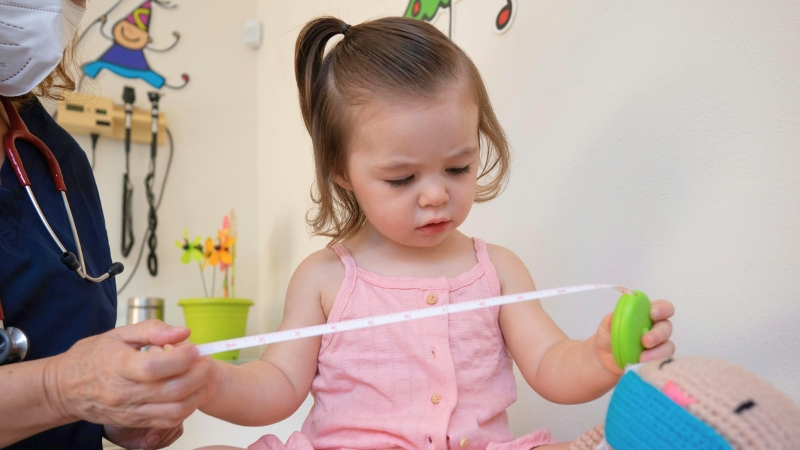
Medicaid and the Children’s Health Insurance Program (CHIP) collectively provide comprehensive health care coverage to more than 38 million children in the United States. For the 80% of children in poverty who rely on CHIP and Medicaid, this coverage can determine whether they enjoy a lifetime of health or one plagued by complications and preventable issues. These programs ensure access to vital physical and behavioral health care, particularly during early childhood, and provide crucial support for children with special health care needs, including those with disabilities, children and youth currently or formerly involved with the foster system, and children of color.
Despite Medicaid’s importance for children’s health, a House leadership study committee has reintroduced a failed plan for budgetary changes that, if developed into federal legislation, could severely cut the program.
Medicaid operates through a federal-state partnership, where the federal government pays a fixed percentage match for each dollar a state spends on Medicaid. The match percentage considers a state’s per capita income, so that states with lower incomes get more support. Under this approach, when state costs rise, the federal government shares in the increased costs. This flexible financing structure enables Medicaid funding to be responsive to state needs.
In an effort to undermine Medicaid and strip its funding, House leadership has proposed a “block grant” system to fund the program. Under a block grant, federal funding would be capped, providing states with a fixed amount of money regardless of actual costs incurred. The plan put forward by the Republican Study Committee suggests dividing Medicaid into five block grants for each of the following groups: Children, seniors, people with disabilities, pregnant women, and all other beneficiaries (including parents).
Additionally, House leadership would reduce the federal match for state Medicaid programs to a 50/50 ratio for all states regardless of per capita income, disproportionately harming states with high poverty rates. This fixed funding model fails to account for increased health care costs due to emergencies such as natural disasters or pandemics, leaving states responsible for managing unforeseen cost rises. Consequently, states would likely be forced to reduce eligibility, cut benefits, and decrease payments to health care providers, including pediatricians.
This health care rationing would have detrimental effects on everyone, but children would bear some of the worst consequences. Fixed funding would not adequately meet children’s needs, leading to limited resources for essential health care services. Moreover, the proposed changes risk relaxing Medicaid requirements, endangering child-specific benefits like the Early and Periodic Screening, Diagnostic, and Treatment (EPSDT) benefit. Children with special circumstances stand to lose the most from these proposed changes. For instance:
- Children with special health needs, including disabilities: Capping Medicaid funding would disproportionately affect children with special health needs by limiting access to costly services such as therapies, medications, and specialized treatments, including some that would not be available through private insurance.
- Foster youth: The fixed funding structure of block grants would limit access to essential health care services for foster youth, a group that already displays an increased risk of negative health outcomes, including developmental delays, behavioral and emotional problems, and other health conditions including diabetes, heart disease, cancer, stroke, and obesity.
- Children of color: More than half of children who identify as Native American, Black, Hispanic, or multiracial have Medicaid as their source of health insurance. Children of color in the United States face an array of health disparities, including higher rates of chronic conditions such as asthma, obesity, diabetes, and hypertension.
House leadership is proposing these limits at the same time that more than 4.6 million children have lost Medicaid coverage due to the “unwinding” of health care protections implemented during the COVID-19 pandemic. In some states, such as Texas, nearly two-thirds of the children enrolled have lost their coverage since the unwinding began in April of 2023. According to early estimates, the “vast majority” of kids losing access to Medicaid or CHIP are still actually eligible for the programs, but have been disenrolled because of administrative issues.
Instead of pursuing policies that restrict access and worsen health outcomes for children, Congress should seize the opportunity presented by the pandemic and the “unwinding” to enhance the health care system for children. Improving children’s health care would include:
- Making CHIP permanent
- Allowing states to expand their CHIP eligibility levels via state plan amendment rather than waivers
- Expanding the 12-month continuous eligibility requirement to cover children from birth until age 6
- Removing barriers to health care coverage based on immigration status
- Improving the quality of and access to mental health services for children
- Ensuring hospitals are prepared to serve kids in the emergency room.
To learn more about how Medicaid block grants would affect children consult our policy brief on block grants.
For questions, please contact Abuko D. Estrada, J.D., Vice President, Medicaid and Child Health Policy
